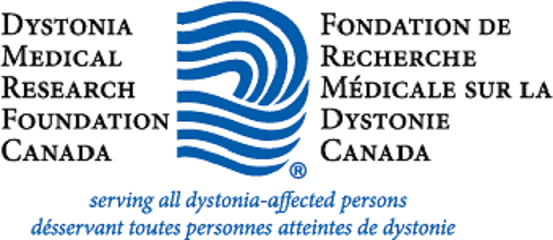Dystonia is More than a Movement Disorder
Dystonia is a neurological disorder that affects the physical body, but the impact goes far deeper and may affect a person's emotional and mental health. Individuals diagnosed with dystonia commonly experience symptoms that affect more than how the body moves.
Non-Movement Aspects of Dystonia
The human brain is staggeringly complex: structures and pathways associated with movement are also involved in cognition, emotion, memory, and other mental functions. Research has demonstrated that individuals with dystonia are prone to certain mental health disorders, particularly depression and anxiety. Individuals may also experience sleep disturbance, pain, and sensory signs.
Click here to access an article from the DMRF USA newsletter on non-movement aspects of dystonia.
Impact on Quality of Life
Regardless of the severity of dystonia symptoms, the presence of depression and/or anxiety is among the most significant predictors of diminished quality of life. Because untreated mental health disorders can have serious and lasting health consequences, several research groups have recommended more routine evaluation of individuals diagnosed with dystonia for co-existing mood and anxiety disorders.
Dystonia & Grief
For years, mental health professionals have recognized that coping with a chronic disorder like dystonia is similar to grieving a loss, such as a death or divorce. Common phases of dealing with dystonia include denial, guilt/shame, anger, bargaining, fear, depression, and acceptance. In some cases, the adjustment to chronic illness is so drastic that an individual's experience is comparable to the symptoms of post-traumatic stress disorder.
Click here to read an article from the DMRF USA newsletter on dystonia and grief.
Need for Total Treatment
Movement disorder neurologists are increasingly recommending that addressing the emotional and mental aspects of dystonia are essential for helping patients feel and function as well as possible. A team of specialists may be needed to implement a complete treatment plan.
Symptoms of Depression
Signs that someone may be depressed can include:
- Persistent 'empty' mood
- Feeling hopeless, helpless, worthless, pessimistic, and/or guilty
- Substance abuse
- Disturbance in eating and sleeping patterns
- Irritability, increased crying, anxiety or panic attacks
- Difficulty concentrating, remembering, or making decisions
- Persistent physical symptoms or pain that do not respond to treatment
Suicide Warning Signs
Signs that someone may be at risk of suicide can include:
- Talking about suicide
- Suicide plans and past attempts
- Statements about feeling trapped or hopeless
- Rage, uncontrolled anger, seeking revenge
- Acting recklessly
- Preoccupation with death
- Feelings that there is no reason for living, no purpose in life
- Loss of interest in things and people that once brought pleasure
- Making arrangements or giving away belongings
- Drug or alcohol abuse
- Dramatic mood changes, including sudden calmness, happiness
Sometimes there are no warning signs.
Are You Feeling Hopeless? Having Thoughts of Suicide?
Help is available and you are not alone.
Dystonia can be a difficult and painful disorder to live with. Managing the day-to-day challenges can seem overwhelming and impossible.
Sources of Help
The Dystonia Medical Research Foundation Canada is not a crisis intervention center. We do not have training in counseling people who are considering suicide. If you are depressed to the point of thinking about suicide, we strongly suggest that you:
- Call or contact The Canada Suicide Prevention Service at 1.833.456.4566 or TEXT45645 to connect with a trained crisis worker now. If outside of Canada, look up crisis centers or distress centers in your phone book.
- Visit the nearest hospital emergency room
- Contact your family doctor or dystonia specialist
- Contact a mental health therapist
- Call a friend, family member, or neighbor
- Contact a religious leader or advisor
Thank you to Dystonia Medical Research Foundation (USA) for allowing us to share this information. The DMRF is a 501(c)(3) non-profit organization dedicated to advancing research for improved dystonia treatments and ultimately a cure, promoting awareness, and supporting the well-being of affected individuals and families.
